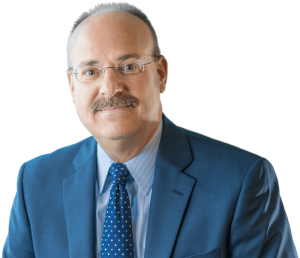Publication Source: N.Y. Hospital & Health News

Physicians suffering from disabilities impacting their ability to perform the material duties of their profession face a myriad of daunting issues. Many of these issues arise from the emotional reality of no longer being able to continue a life-long profession. Others involve how to coordinate the temporary or permanent transition out of the profession with the duties physicians owe to their partners, office personnel and patients. For those who had the foresight to obthin disability insurance, it is vital at this time of need to secure and maximize those benefits.
One issue that often arises is when the physician should or can actually stop working as a result of a disability. Of course, some disabilities are so debilitating that there is no choice. But very often, the disability is partial or gradual, increasingly impacting the physician’s material duties over time. Deciding when or to what extent to stop working not only has direct impact upon eligibility for disability benefits, but also, to the surprise of many physicians, upon the confidentiality of their own personal medical history in malpractice cases against them.
We have found that these are two principal areas in which physicians can do damage to themselves by forging ahead without knowing their legal rights and responsibilities.
A fictitious case history based upon several real-life stories is instructive, An orthopedic surgeon suffered from carpel tunnel syndrome in his dominant hand that gradually increased in severity so as to ultimately force him to stop performing surgeries. He had an “own occupation” insurance disability policy, providing him with monthly benefits of $15,000 if he could not perform the material duties of his profession - i.e., an orthopedic surgeon - and partial disability payments depending upon his loss of income and work capacity. When the pain and numbness in his hand started to impact him, the surgeon decided to decrease his caseload by 10 percent, then by 25 percent, and then by half until, within two years, he could no longer get through even one surgery. He then agreed with his partners that he would perform more of the administrative functions in the office and “consult” with patients where necessary. He mentioned at times to some of his patients that he was having trouble with the surgeries because of his condition.
Unfortunately, our surgeon did not get around to filling out his claim for disability benefits until several months after he stopped performing surgeries. When he applied for his 'own occupation' benefits because he was no longer able to practice his profession - an orthopedic surgeon - his insurance company denied his claim because “occupation” is defined in his insurance policy as the one he was performing at the time of his claim for disability. Thus, because he was no longer performing any surgeries at that time, and had substantially reduced his surgeries for the last two years, the insurance company did not consider him to be a surgeon.
Further, the surgeon was sued for malpractice for a complication during one of his surgeries toward the end of his tenure. The patient demanded to see all of the surgeon’s own personal medical records for the two years encompassing the surgery - ostensibly because they may have bearing upon the surgeon’s fitness to perform the operation m question. Much to the surgeon’s surprise, the court allowed the patient to see his medical records because it said he waived his own medical privilege by revealing to his patient that he had carpal tunnel syndrome when he performed the surgery at issue.
While he could challenge the insurance company’s refusal to pay, the surgeon certainly did nothing to aid his own cause by failing to file his claim for disability insurance in a timely manner. Even filing for partial disability benefits may have aided his recovery. His own delay was the difference between receiving the maximum benefits under his policy and a ready excuse for his carrier to deny coverage when he needed it the most.
Moreover, while courts will not easily order a physician to release his or her own medical history in a malpractice case, there is a line of decisions allowing such disclosure if the physician puts his or her condition in controversy or otherwise waives the privilege by disclosing the condition.
Obviously, timely legal advice could. have helped to avoid the problems that our surgeon invited by his own conduct. Our experience shows that in the areas of disability and malpractice law, preventive legal medicine is often more important than the subsequent search for the legal “cure.”
-----
Kevin Schlosser is a Shareholder and Chair of the Litigation and Alternative Dispute Resolution Department at Meyer, Suozzi, English & Klein, P.C. He handles complex commercial litigation, is on the Roster of the AAA National Panel of Commercial Arbitrators, serves as outside general corporate counsel, and is author of the New York Fraud Claims Blog, www.nyfraudclaims.com.
990 Stewart Avenue, Suite 300,
Garden City, NY 11530
750 Ninth Street, Suite 501
Washington, D.C. 20001
Phone(202) 887-6726Fax:(202) 223-0358


